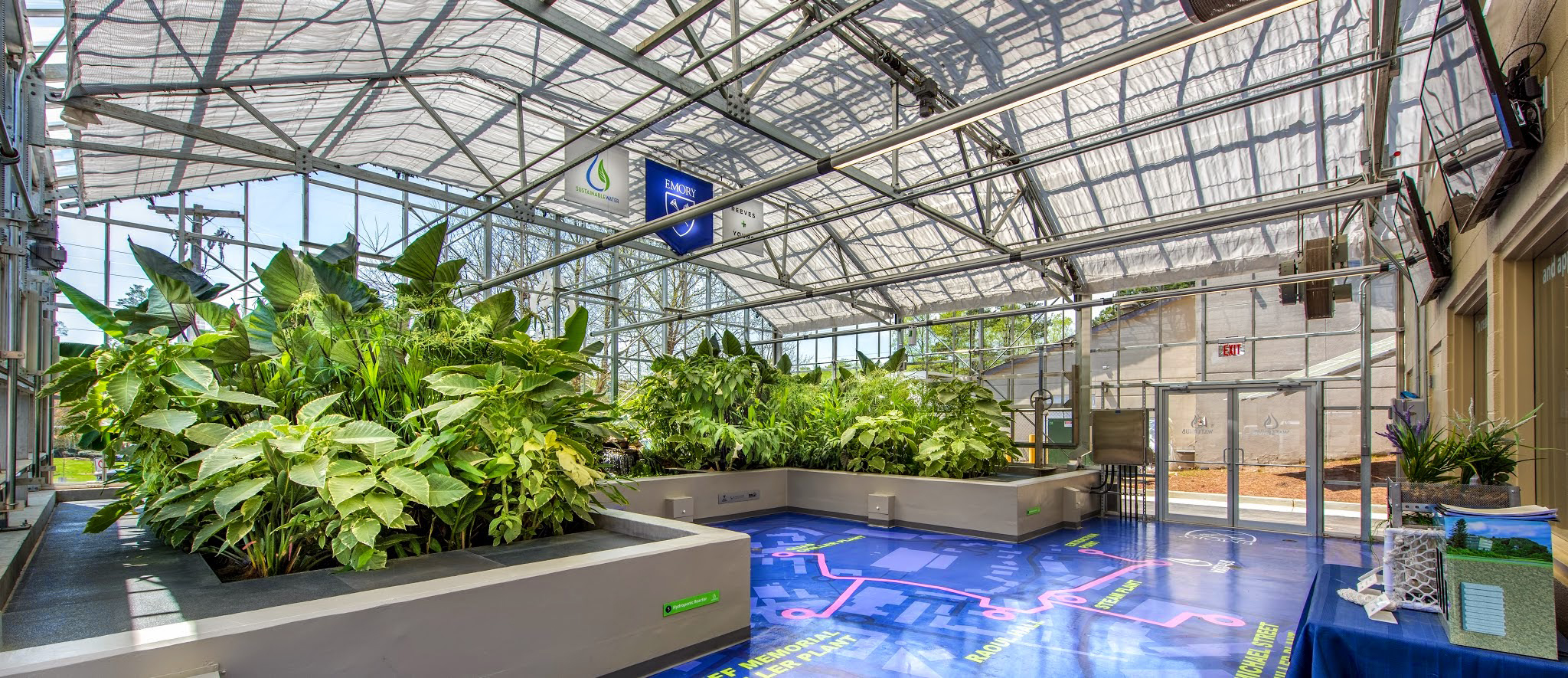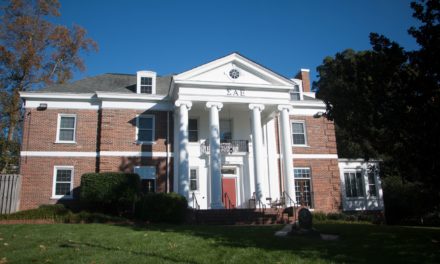The United States Water Alliance recently awarded one of three 2016 U.S. Water Prizes to Emory’s WaterHub, an on-campus water recycling facility that cleanses low-quality wastewater, according to Vice President for Campus Services at Emory Matthew Early.
Recipients of the annual U.S. Water Prize Award are considered leaders in sustainable water resource management, according to the U.S. Water Alliance’s website. Installed in January 2015 and in operation since February 2015, the WaterHub collects wastewater from sewers and campus buildings and recycles it into non-potable water.
Sustainable Water and McKim & Creed, two firms with which Emory partnered to finance and engineer the WaterHub, nominated Emory for the prize, according to an April 2016 University press release. District of Columbia Water and Sewer Authority (DC Water) and Dow Water & Process Solutions also received awards for their Walter F. Bailey Bioenergy Facility and Minimal Liquid Discharge technology, respectively.
The facility, which can recycle up to 400,000 gallons of water each day — equivalent to almost 40 percent of Emory’s total campus water needs — uses biomimicry technology and is “the first system of its kind to be installed in the United States,” according to the Division of Campus Service’s website. The recycled water is used to heat and cool buildings throughout campus and flush toilets in Raoul Hall.
The WaterHub will save millions of dollars in water utility costs for Emory over a 20-year period, according to the website.
“You cannot look anywhere else and find this kind of project,” Early said. “There’s nothing like [the WaterHub] anywhere else in the nation. Not one.”
The WaterHub-cleansed water will soon be used in adjacent residence halls, including Longstreet-Means and Hamilton Holmes, according to Early. Emory also plans to use the WaterHub to irrigate its baseball fields.
Early said that he is glad that Emory received recognition for its sustainability efforts and is hopeful that Emory can spread this system to other schools and companies.
According to Early, since the beginning of the WaterHub’s operation, Emory has worked to spread information regarding the facility’s technology. The facility has received over 100 visits from various universities and companies.
The Environmental Protection Agency (EPA) Administrator Gina McCarthy and a representative from Rwanda’s Ministry of Infrastructure who wanted to assess whether a similar facility might be a good solution for water treatment in Rwanda have visited the WaterHub Emory, according to Director of Sustainability Initiatives at Emory Ciannat Howett.
McCarthy described the WaterHub project as “important for the EPA” and noted that it may represent an “alternative that the agricultural community would readily embrace,” according to a February 2015 University press release.
Students, too, can study the facility firsthand through research opportunities and tours, according to Early, who described the WaterHub as a “living laboratory.” Students from the Rollins School of Public Health, for instance, use the facility to research sanitation and water treatment.
“We have given hundreds of tours to elementary school students, EPA administrators and corporate leaders,” Howett said. “That is exactly the kind of community outreach role that a university should be playing.”
Early added that the facility itself represents the importance of research and education.
“[Emory is] a research institution where we find things across the spectrum that would improve humanity,” he said. “This is just another way to show nationally and globally that [we can find alternatives].”
Howett added that spreading this technology is important, noting that the United Nations expects global water demand to exceed supply by 40 percent in the year 2030. She said she hopes that similar water treatment systems will be more common in the future.
“Not only is the WaterHub environmentally the right thing to do, but it’s also economically [the] right thing to do and socially the right thing to do,” Howett said.
Lauren is an Environmental Science and Media Studies double major from Braselton, Georgia. She is a staff writer for the Emory Wheel, a member of Pi Beta Phi, president of Emory Running Club and a member of the Emory Environment Senate Committee. In her free time, she likes to play with her four dogs, including one named Kat!






